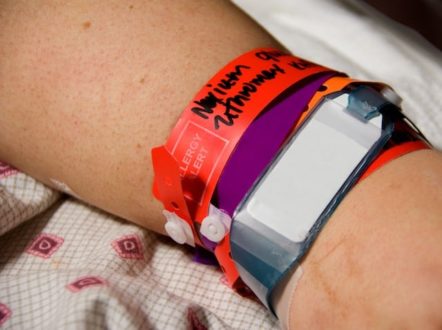While not all mistakes can cause harm to our patients, most of them are excellent sources of embarrassment. Looking back, you’ll probably laugh at yourself for sending a patient update to the wrong doctor in the middle of the night or addressing an upset relative in the ward.
If you’re a new nurse, you may probably find humor and learning in these five common errors we all tend to commit as newbies.
1. Calling a patient by the wrong name.
This is one of the most common, yet fatal, errors most new nurses commit. While there’s almost nothing harmful in addressing the patient with the wrong name while talking to him, it’s a whole different story when it comes to giving medications. You can end up giving him the wrong meds at the wrong time, route and frequency.

Lesson: To avoid medication errors, it’s essential that you know the Rights of Drug Administration. Ask the patient his name and double check it against his ID band and his chart. Even if you’re aware of who the patient is, make it a point always to ask and verify.
2. Updating the doctor without the complete information at hand.
“I remember the first time I called the attending physician of one of my patients. It was so nerve-wracking that I literally had to rehearse what I’m going to say before calling his number. When he finally picked up, I couldn’t even answer his first question because I forgot the CBC result I was supposed to update him with,” a novice nurse said.

Lesson: If you’re going to call the doctor, have your patient’s chart with you and all the necessary lab and imaging results at hand. This is particularly important if you’re going to call the physician at 2 o’clock in the morning. Before you make that call, be prepared with your assessment findings. Take my word for it.
3. Committing a medication error.
Almost all nurses have committed a medication error once in their professional service. While some nurses were able to catch their mistakes before they caused harm to their patients, there are a few number of cases that resulted in lethal threats.
“The first time I hung a piggyback, I actually forgot to turn on the roller clamp. I only realized it when I came back to recheck on the patient a few hours later. My senior nurse was not happy. He had me do a return demonstration about piggyback infusion after…it’s like nursing school all over again! I never commit the error since.” an experienced ICU nurse shared.
Lesson: There are a lot of ways to avoid medication errors. If you commit one, however, it’s essential that you avoid covering it up. Own up and take responsibility to tell the healthcare team, your senior nurse, and the physician to ensure your patient’s safety. At some point, you may also need to tell your patient about it.
4. Not knowing enough about the patient’s condition.
Most of the time, patients and relatives feel intimidated and shy that they tend to ask nurses questions they would want their doctors to answer. If you encounter this, be prepared to give an honest response. If you’re not sure about it, politely tell them to address the question to the doctor instead or you’ll gather more info and you’ll get back to them soon.
Patient’s often ask the nurse about the medication they are taking. If you’re not thoroughly aware of why a particular medication is given for your patient’s medical condition, there’s a good chance they won’t find you credible enough to care for them.
Lesson: Always stay updated with your patient’s care plan. During the day, his doctors can create changes in his diet and medications which you need to be aware of. The last thing you want to happen is for your patient to tell you what the doctor told him he can and can’t eat.
5. Not asking questions.
As a new nurse, it’s common to feel intimidated and shy, particularly if you’re working closely with veterans. Unfortunately, this behavior often leads to why nurses unknowingly commit errors.
“I once received an order to apply an ointment to the patient, three times a day. The order seemed incomplete to me, but I was too afraid to ask the attending physician as he might see me as an incompetent nurse. Being new to the team, I wouldn’t want to create a bad impression. I ended up omitting the treatment and not doing the order”, a ward nurse admitted.
Lesson: Always ask. If you’re not sure about something, ask. Don’t be a know-it-all nurse! If an order seems wrong, clarify. If it’s the first time you’re administering something, look for assistance. Veteran nurses today didn’t get their expertise and skills from nothing. They got it from other experienced nurses that were there when they were still new like you.
What were your first errors as a nurse? What did you learn from them?

